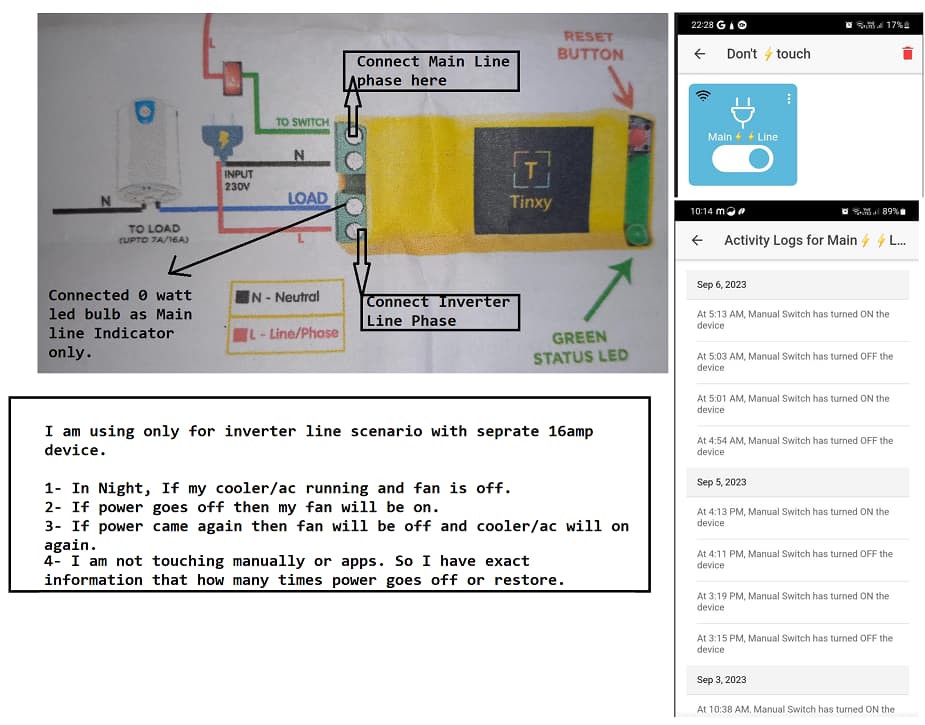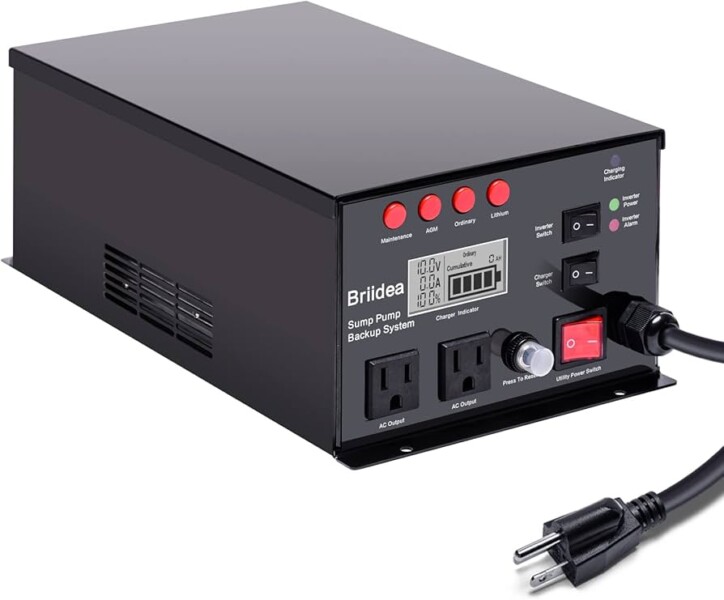To use the main power when an inverter isn’t working, switch to the main electrical supply. Ensure the inverter is properly bypassed.
Inverters are essential for providing backup power during outages. Sometimes, they fail due to technical issues or battery problems.
Knowing how to switch to the main power supply can save you from prolonged interruptions. First, identify the switch that controls the power source.
Flip it to connect to the main electrical grid. This simple step bypasses the malfunctioning inverter, restoring power to your home or office.
Regular maintenance and timely checks can prevent such issues. Always consult the inverter’s manual or a professional for specific instructions. This approach ensures a seamless transition back to the main power, minimizing downtime.
Identifying The Problem
Lights flicker when you use the inverter. The inverter beeps often. The battery dies quickly. The inverter does not turn on. Unusual noises come from the inverter. The display shows errors. The fan runs constantly.
Loose connections can cause problems. The battery might be low or faulty. Overloading the inverter is a common issue. Wiring problems can also cause trouble. Dust can block the cooling fan. Heat can damage components. The inverter’s age can be a factor.
Safety Precautions
Ensure safety by disconnecting the inverter from the main power source. Use battery backup or an alternative power supply if available. Always follow manufacturer instructions to prevent accidents.
Always turn off the main power switch first. Unplug the inverter from the wall socket. Check all wires to make sure they are not live. Never touch exposed wires with bare hands. Use a voltage tester to confirm no power flow. Label all switches and wires. This helps others know the equipment is off.
Make sure all family members know these steps. Wear rubber gloves to protect your hands. Use safety goggles to shield your eyes. Rubber-soled shoes can prevent electric shocks. Long sleeves and pants cover more skin. Avoid wet areas while working. Keep a first-aid kit nearby. Inform someone you are working on the inverter. They can help in case of an emergency.
Initial Troubleshooting
Ensure the power source is switched on. Check if the power outlet is working. Plug in another device to test the outlet. Look for any blown fuses or tripped circuit breakers. If found, replace or reset them. Confirm that the inverter switch is turned on. Make sure there is no power outage in your area.
Inspect the connections between the inverter and the power source. Ensure all wires are tightly connected. Look for any damaged cables and replace them if needed. Check the battery terminals for any corrosion. Clean them using a battery terminal cleaner. Verify that the battery is properly charged and connected.
Battery Assessment
Check the battery terminals for any corrosion. Clean them if necessary. Look for any swelling or leaks in the battery. These signs indicate a problem. Use a multimeter to measure the battery voltage. It should match the rated voltage.
A low voltage means the battery is weak or dead. Charge the battery fully and test again. If the voltage is still low, consider replacing the battery.
Turn off the inverter before testing. Connect the multimeter to the battery terminals. Ensure the multimeter is set to DC voltage. Read the voltage level on the display.
Compare it with the expected voltage. Normal readings are around 12V or 24V, depending on the system. A reading below the expected voltage indicates a problem. Check the connections and test again.
| You May Like: What Makes Bestek Power Inverters Reliable
Inverter Inspection
Check the inverter’s exterior for any damage. Look for any loose or broken wires. Make sure there are no burnt marks on the inverter. Check the battery terminals for corrosion. Ensure the cables are tightly connected. Verify the LED indicators are functioning. If the lights are off, the inverter may have issues.
Use a multimeter to test the battery voltage. It should be within the recommended range. Test the output voltage of the inverter. If it’s too low or too high, there may be a fault. Check the fuses and circuit breakers. Replace any blown fuses. Ensure the cooling fan is operating properly. Overheating can cause the inverter to shut down.

Credit: www.amazon.com
Temporary Power Solutions
A generator can provide power when the inverter is not working. Generators are easy to use. They can power many devices in your home. Make sure to keep fuel ready. Always follow safety rules. Place the generator outside to avoid fumes. Generators are very helpful in emergencies.
Solar panels can be another option. They use sunlight to make power. Solar panels can help during the day. You need a battery to store power for night use. Wind turbines can also help. They need wind to make power. Both options are good for the environment. Always keep these sources in mind.
| You May Like: What is a Power Inverter for Car?
Repair And Replacement
First, check the power connections. Make sure all cables are securely plugged in. Next, inspect the battery. It should be fully charged. Reset the inverter if it has a reset button. Sometimes, the fuse might be blown.
Replace it with a new one of the same rating. Cleaning dust from the inverter can also help. Loose connections can cause issues. Tighten them if needed. These simple steps might solve the problem.
If DIY fixes don’t work, call a professional. They have special tools. Experts can diagnose the problem correctly. Professionals ensure safety. They might replace faulty parts. Sometimes, wiring issues need expert hands. Certified technicians are the best choice. They can repair or replace the inverter. It ensures your inverter works properly again.
Preventive Maintenance
Check your inverter every month. Look for any signs of damage. Loose wires can cause problems. Ensure connections are tight. Dust can block the cooling fan. Clean the inverter to keep it cool. Overheating can damage it. Inspect the battery as well. Keep it fully charged and clean.
Store the inverter in a cool and dry place. Keep it away from water. Moisture can cause rust. Heat can damage the electronics. Do not place heavy items on it. This can break it. Cover the inverter to protect it from dust. Make sure the storage area is ventilated.

Credit: forum.tinxy.in
Frequently Asked Questions
Why Is My Inverter Not Powering Appliances?
Your inverter might not power appliances due to a low battery, faulty wiring, or a defective inverter. Check all connections and battery charge first.
How Do I Reset My Inverter?
To reset your inverter, turn it off, disconnect it from the battery, wait a few minutes, then reconnect and turn it on.
Can A Blown Fuse Cause Inverter Issues?
Yes, a blown fuse can disrupt power flow and cause the inverter to stop working. Check and replace any blown fuses.
What Should I Do If My Inverter Is Beeping?
If your inverter is beeping, it might indicate low battery voltage or an overload. Reduce the load and check the battery.
Conclusion
Ensuring your inverter’s main power works properly is crucial for reliable energy. Regular maintenance and troubleshooting can prevent issues.
Always consult your user manual and seek professional help if needed. By following these steps, you can maximize your inverter’s efficiency and longevity.
Stay proactive to keep your power system running smoothly.

